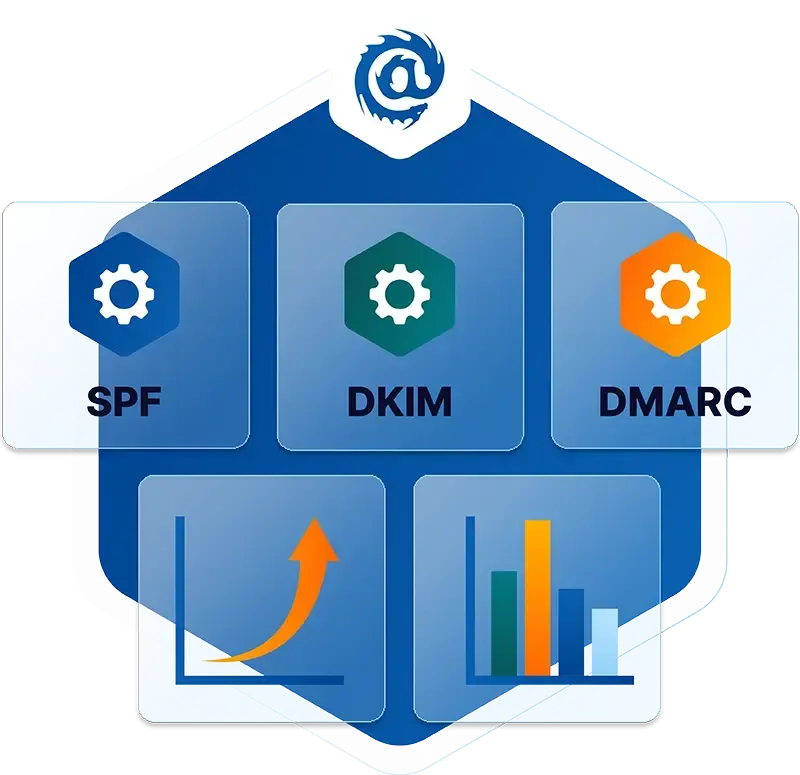Table of Contents
Large Language Model Explained
A Large Language Model (LLM) is a type of deep-learning model based on transformer architecture that has been trained on a massive amount of text data. LLMs are designed to understand and generate human-like text in a coherent and contextually relevant manner. These models can process and analyze language at a large scale, making them valuable tools for various applications such as natural language processing, text generation, translation, summarization, and question answering. LLMs have the ability to generate text autoregressively, predicting the next word based on the context provided by previously generated words.
Transformer to Large Language Model
The transformer model, introduced in the paper "Attention is All You Need" by Vaswani et al. in 2017, revolutionized the field of natural language processing. Unlike traditional recurrent neural networks that process text sequentially, the transformer model leverages the attention mechanism to capture long-range dependencies in language. This allows the model to understand the context of a word by considering the entire sentence or paragraph simultaneously, leading to improved language understanding.
A large language model is built upon the transformer model by scaling it up in terms of model size, training data, and computational resources. LLMs have larger encoder and decoder architectures, enabling them to handle complex language concepts and generate high-quality text output. These models are typically trained on massive amounts of diverse text data, including books, articles, websites, and other sources, to develop a deep understanding of language patterns and structures.
How Do Large Language Models Work?
Large language models process text by following a series of steps. Firstly, the input text is tokenized, breaking it down into smaller units such as words or subwords. These tokens are then converted into numerical representations called embeddings, which capture the semantic meaning of the tokens. The transformer encoder takes these embeddings as input and transforms them into a context vector, which represents the essence of the entire input text.
To generate text, the transformer decoder takes the context vector and a leading sentence or prompt as input. The decoder generates the next word by predicting the most probable word given the context and the previously generated words. This autoregressive generation process can be repeated to generate longer passages of text.
Large language models learn to generate text by training on vast amounts of text data. They capture statistical relationships between words, phrases, and sentences, enabling them to produce coherent and contextually relevant responses. While LLMs don't explicitly store grammar rules, they learn implicit rules through examples in the training data.
What are the Benefits of Large Language Models?
Large language models offer several benefits in the field of natural language processing and text generation. Some key advantages include:
-
Enhanced Context Understanding: LLMs, built on transformer architecture, can capture long-range dependencies in language and understand the context of a word or phrase better. This enables them to generate more coherent and contextually appropriate text.
-
Language Generation: LLMs excel at generating human-like text that closely resembles natural language. They can produce high-quality output for tasks such as translation, summarization, question answering, and text completion.
-
Versatility: LLMs can be fine-tuned for specific tasks by providing task-specific training data. This adaptability allows them to perform a wide range of language-related tasks and be customized for specific applications.
-
Efficiency: LLMs can process and analyze large amounts of text data quickly, making them efficient tools for tasks such as data analysis, content generation, and language understanding.
LLMs in Cybersecurity
Large language models have the potential to play a role in cybersecurity, both as a tool for attackers and defenders. On one hand, LLMs can be leveraged by cybercriminals to create sophisticated malware, phishing emails, and evade detection by emulating real data. This poses a challenge for cybersecurity professionals who need to keep up with evolving threats.
On the other hand, LLMs can be used by cybersecurity teams to improve their defenses. LLMs' efficiency in processing large datasets can aid in rapidly detecting threats, identifying vulnerabilities, and even finding zero-day vulnerabilities in code. These models can also be used to automate processes, such as generating fake user credentials to detect data breaches or simulating attacks to test system resilience.
While LLMs offer potential benefits in cybersecurity, there are also limitations and ethical considerations to address. Bias in training data, data privacy and security, and the need for human expertise to interpret and validate LLM-generated output are important factors to consider. Additionally, leveraging LLMs effectively requires a deep understanding of both the business needs and the capabilities of these models.
Overall, LLMs have the potential to enhance cybersecurity efforts, but they should be used in conjunction with existing security measures and human expertise to ensure comprehensive protection against evolving threats.
IRONSCALES PhishLLM Advances Email Security
IRONSCALES' PhishLLM is an innovative large language model (LLM) that drives significant advancements in email security. Hosted within the IRONSCALES infrastructure, PhishLLM powers "Themis Co-Pilot," a generative AI mailbox-level email security assistance. This groundbreaking solution represents the first of IRONSCALES' suite of generative AI (gen-AI) apps designed to combat the exponential rise in phishing attacks.
IRONSCALES' commitment to leveraging the capabilities of PhishLLM in developing innovative gen-AI apps signifies a proactive approach to combatting the ever-evolving landscape of phishing attacks. Through continuous advancements in generative AI, IRONSCALES aims to empower organizations with robust email security solutions that protect against emerging threats and ensure a cyber-resilient environment.
Learn more about IRONSCALES advanced anti-phishing platform here. Get a demo of IRONSCALES™ today! https://ironscales.com/get-a-demo/
Explore More Articles
Say goodbye to Phishing, BEC, and QR code attacks. Our Adaptive AI automatically learns and evolves to keep your employees safe from email attacks.

/Concentrix%20Case%20Study.webp?width=568&height=326&name=Concentrix%20Case%20Study.webp)












